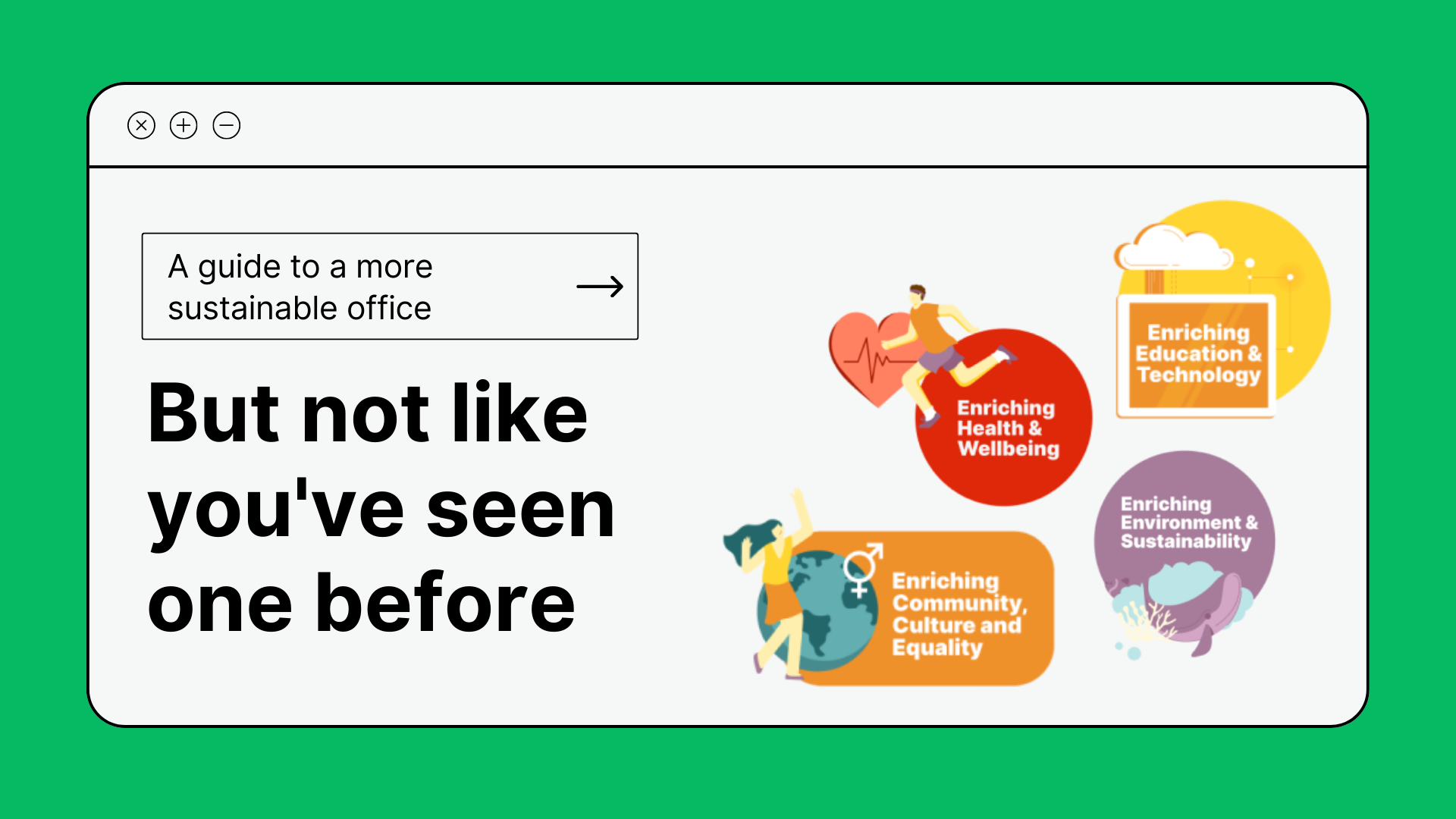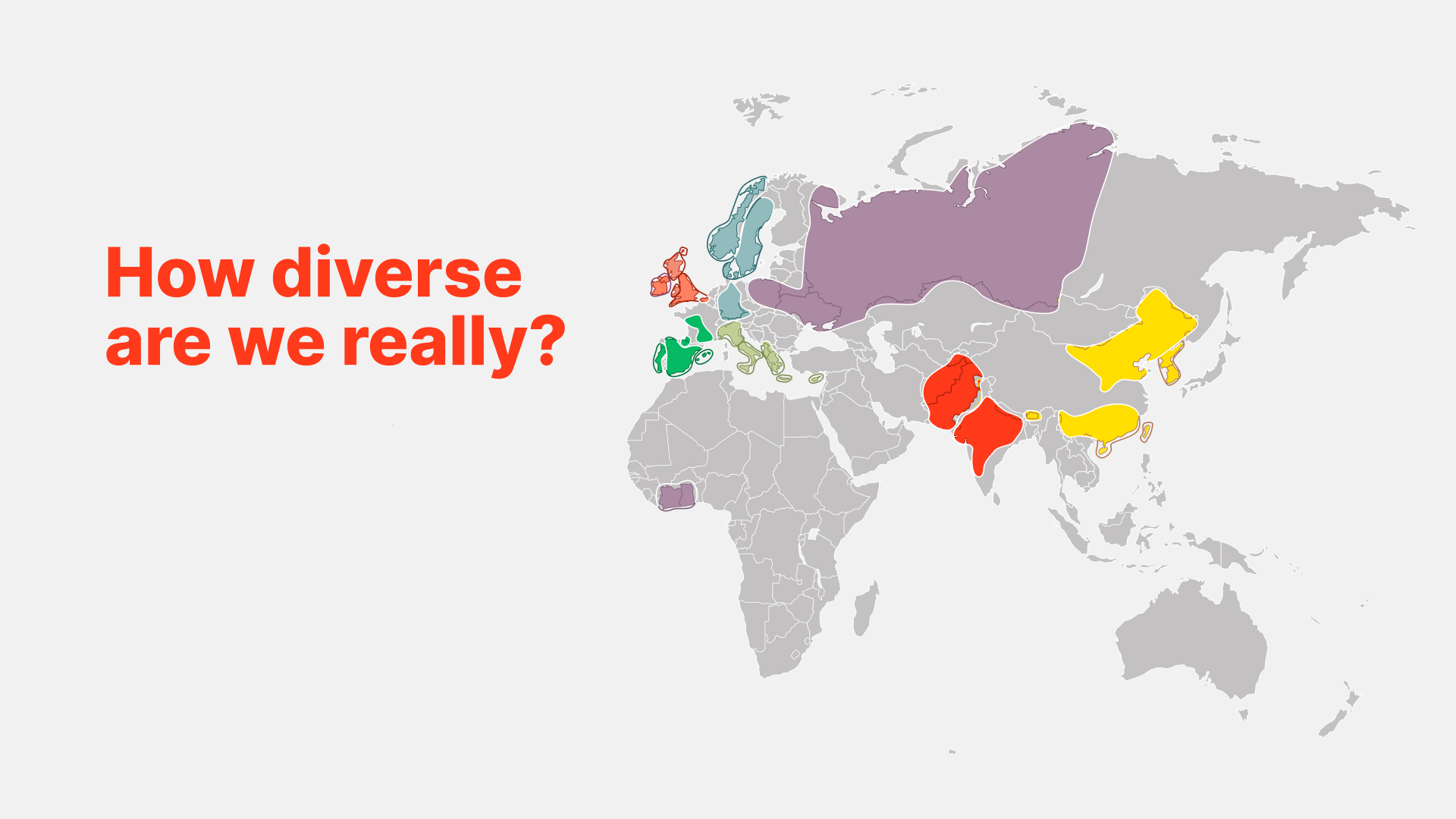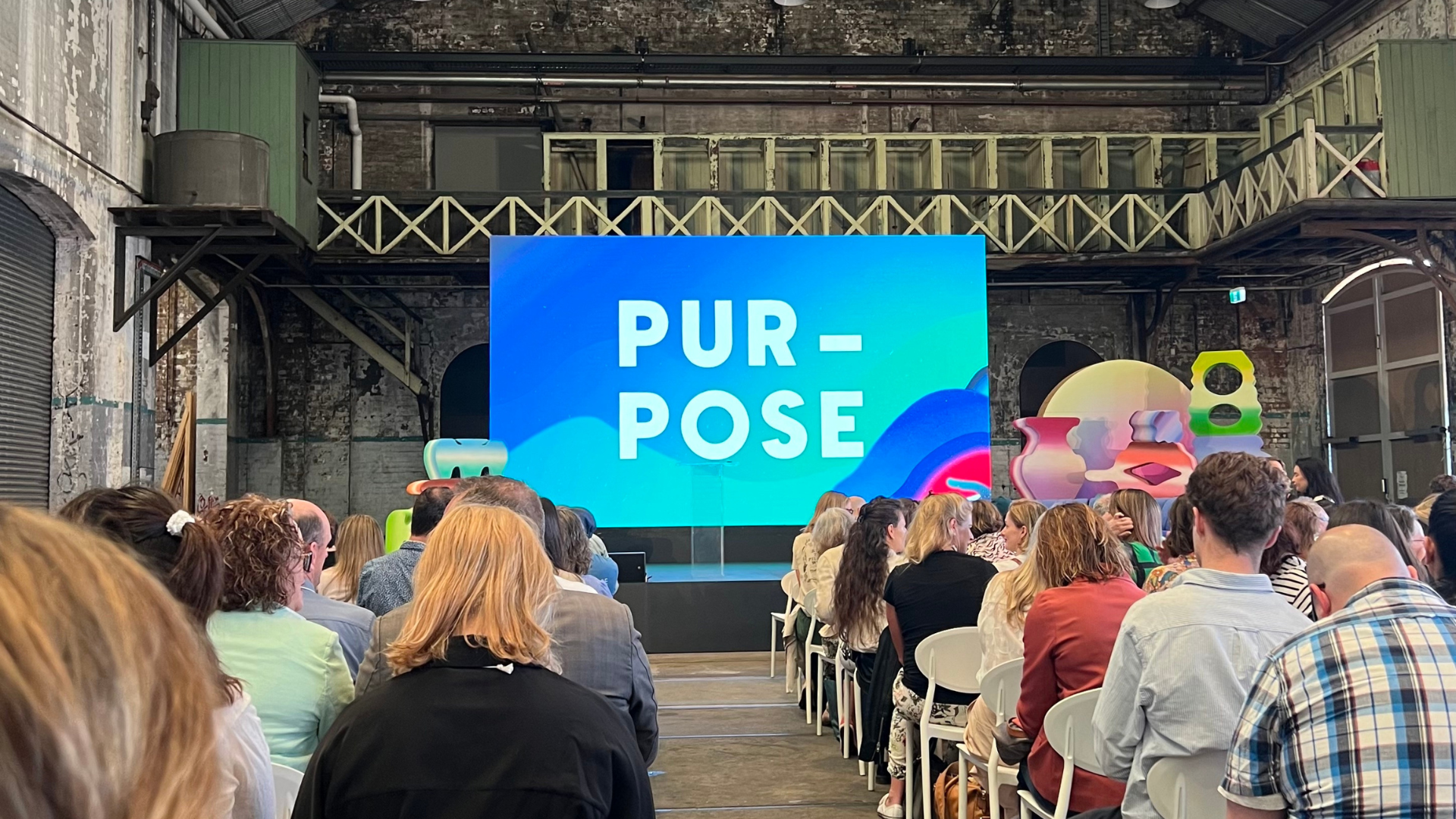
Purpose Conference 2022
From understanding climate activism and impact investment, to learning about responsible tech and corporate irresponsibility, we’re still buzzing from our time spent at Purpose Conference. The insightful and immersive two days brought together a diverse and thoughtful group of people and businesses all driven by one thing: purpose.
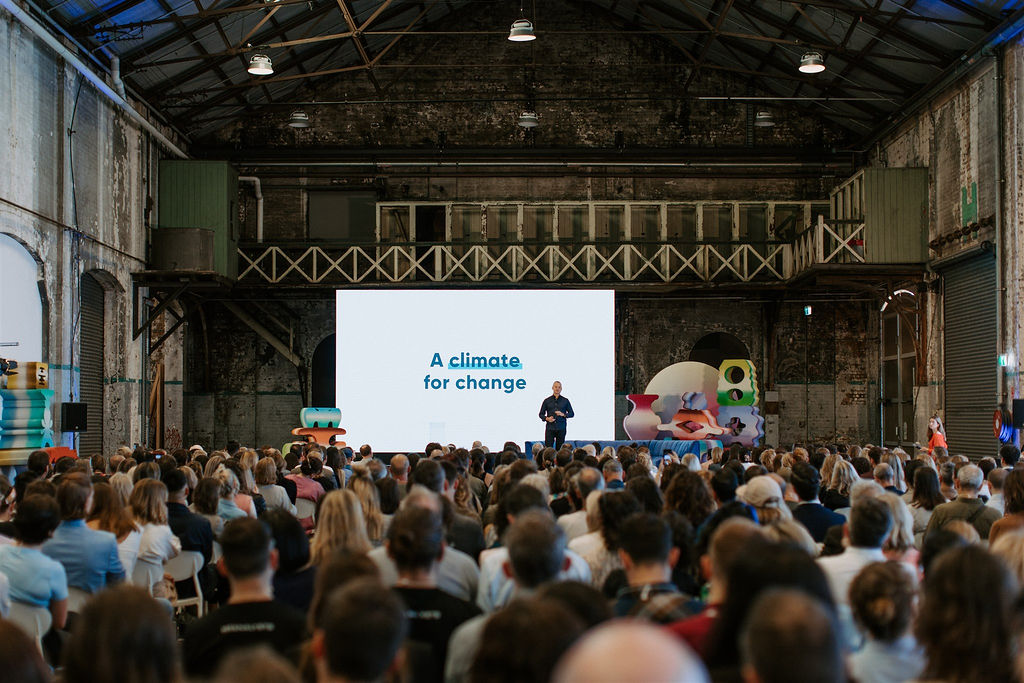
Simon Holmes à Court
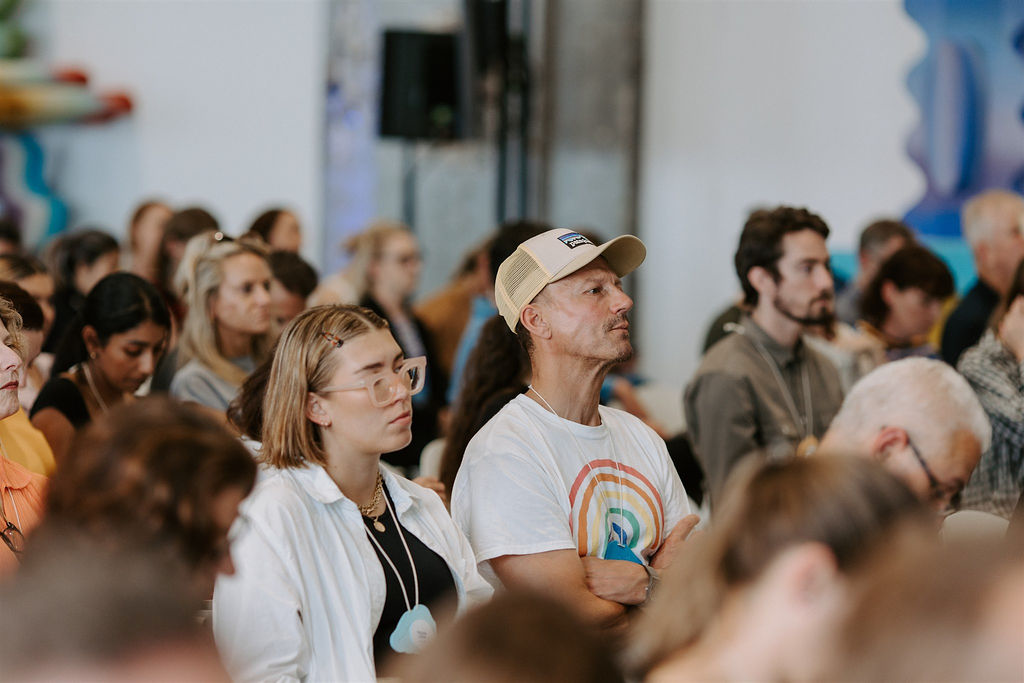
Tegan Lerm (Social Media Manager and Sustainability Officer) & Phil Watson (Creative Strategy Partner)
It can be difficult to compile a list of key learnings from an event as jam-packed with ideas as this one, but our Sustainability Officer has given it her best shot below…
Sustainability problems are wicked problems; social or cultural issues or concerns that are difficult to explain and seemingly impossible to solve. Given this, a diverse set of minds from varying backgrounds and industries will be needed to solve them. Luckily, we’ve got events like Purpose that bring all of those minds together!
Consumers are increasingly demanding more from brands than just a product or service. They want brands to act ethically, give back and take a stand. They want brands with purpose. Research from The Guardian found these to be the main attributes of a ‘purpose brand’:
- Progressive
- Trustworthy
- Empowering
- Authentic
- Impactful
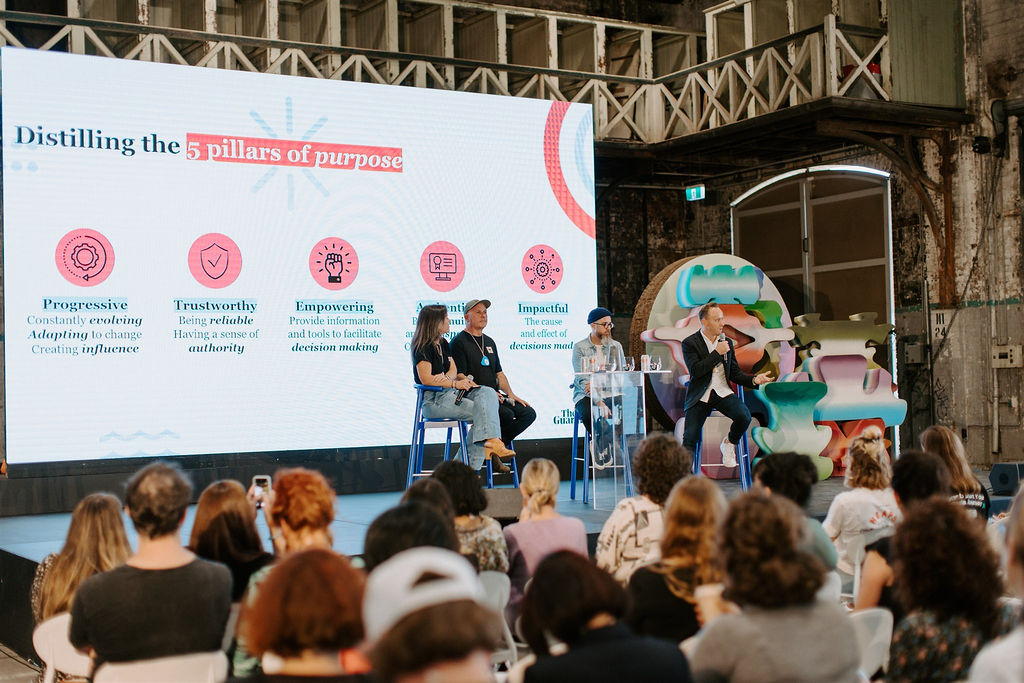
Panel: The Power of Purpose in Brand and Positioning
So, you’ve got a ‘purpose brand’? That’s amazing, but are you effectively communicating your brand’s purpose?
- Storytelling is a superpower! It drives shared value between your brand, your consumers, and your employees. That means it’s time to take your consumers on your purpose journey and communicate everything – your wins and losses, struggles, and achievements. Take Zero Co. for example. During the horrific Northern NSW floods earlier this year, a warehouse holding all of their returned refillable pouches flooded. When the water subsided, they found pouches scattered everywhere; right across the property and into nearby waterways! Instead of hiding this, their founder took to social media and told their followers. This progressive and vulnerable move was authentic to their brand, showed their commitment to transparency and has ultimately increased consumer trust.
- It’s also important to acknowledge that our First Nations people are experts in storytelling. We can all continue to develop our storytelling skills by listening to and learning from Aboriginal and Torres Strait Islander peoples.
You don’t have “sustainability” in your job title? That’s totally fine! Anyone can discuss and develop climate strategies aimed at transforming their workplace. Just ask WorkForClimate, who can guide you through this process and provide you with the steps required to take climate action at work.
There are more incentives now than ever to go green!
- Historically, being environmentally conscious has come at a (hefty) price. Bank Australia is flipping this idea on its head by offering a reduced interest rate on loans for people who want to invest in solar panels, window glazing and insulation for their home or even buy or build a planet-friendly, energy-efficient home. This Clean Energy Home Loan has even influenced other banks to offer similar incentives!
Gone are the days when we thought recycling was a solve-all solution because the circular economy is coming, and it’s coming quickly. According to Planet Ark, the circular economy will be worth $26 billion in Australia by 2025. From beauty products to building materials, businesses everywhere are taking their linear business models and making them circular, extending the life cycle of what was once considered single-use.
Moving from an offset to an inset mindset.
- Offsetting shouldn’t be the first option, but the final resort. When you’re looking to reduce your environmental impact, think about your internal processes. What can you do to minimise impact before resorting to offsets?
Seaweed might just save us?!
- If we learned anything from Purpose, it’s that we can’t rely on one saving grace to solve the climate crisis, but seaweed will definitely help decarbonise our planet! Growing seaweed helps to clean and de-acidify our oceans by absorbing nutrients and CO2 via photosynthesis. Seaweeds grow faster than land-based plants and can even be fed to livestock to reduce the methane they create! SeaForest is pioneering the development of this Asparagopsis (seaweed) feed supplement, which according to their website, has the capacity to reduce methane by up to 98%.
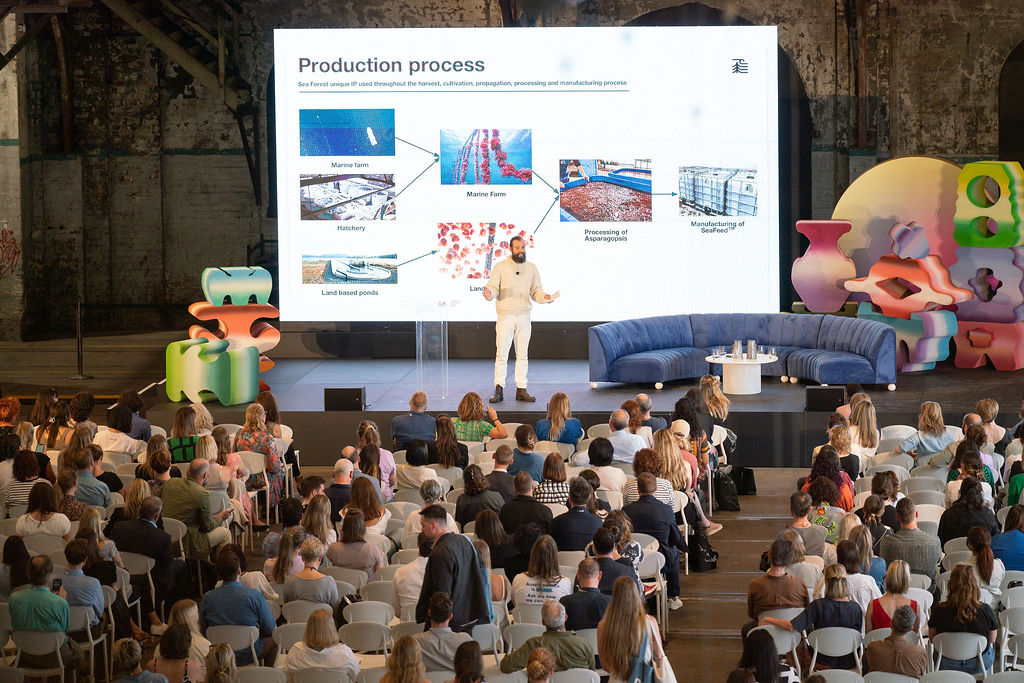
Sam Elsom, SeaForest
As we continue to digest everything we learned, we’re going to begin to implement learnings from the incredible purpose-driven businesses we heard from. All that’s left to say is, when is the next Purpose?!
Photography: Elin Bandmann & Rodrigo Liauro
